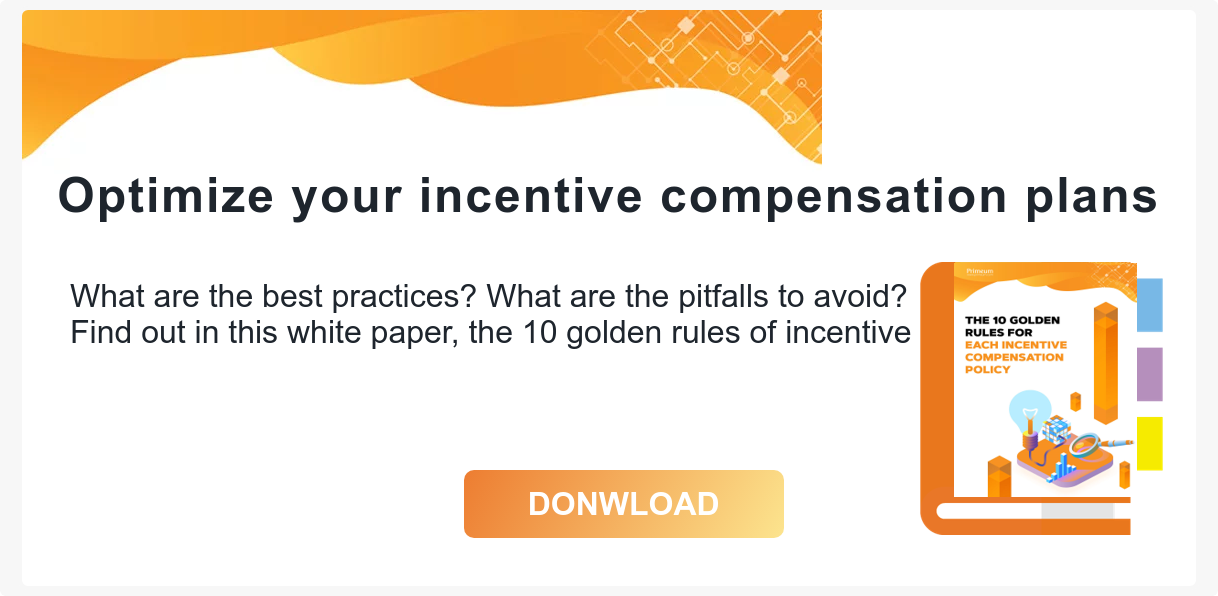Bonuses and games, two levers known to be particularly effective in influencing the motivation of your employees and their effectiveness. The point with Herve De Riberolles, Head of International Development at Primeum.
WHAT ARE THE MAIN DIFFERENCES BETWEEN INCENTIVE COMPENSATION AND THE COMMERCIAL CHALLENGE?
One tool is not more efficient than the other. Each serves a somewhat different purpose. The purpose of variable pay compensation: to motivate employees over the long term. It encourages performance to be consistent with the company's strategy. The commercial challenge will, meanwhile, put a spotlight on a particular item.
Example: in the case of launching a new product. It is particularly effective on a short time, from a few days to a few weeks only. It is not intended to live several months.
The challenge is an additional tool, which is not necessarily intended to be part of the incentive pay plan. It comes to support the schem by putting a booster at a given time, significantly enough for the staff to talk extensively, for a short time. This dynamic aspect will stimulate their mindset to overcome. For example, the challenge is an excellent tool for re boosting teams early in the year (link to article good resolutions 2017) if you cannot immediately set specific goals.
IS THE COMMERCIAL CHALLENGE AN EFFECTIVE MEANS FOR TESTING A VARIABLE COMPENSATION IN PARTICULAR BEFORE INTEGRATING IT INTO ITS COMPENSATION PLAN?
I am not convinced that it is a good idea to make the challenge an incentive compensation test! The same complexity is needed to build a challenge that a incentive compensation plan. So it is better to tackle from the start to its main objective. I especially think that, if you want a long-term motivation and support the performance of employees in a sustainable way, incentive compensation is essential.
The challenge must not contradict the incentive compensation. Employees should not end up playing the challenge at the expense of the incentive compensation. Companies may add challenges to compensate for the inaccuracy of incentive compensation system. Adding patches is fine for a while ... but it can be quite dangerous. It is better to count on a complete review of the system for better visibility and understanding from your team. A challenge must complement the incentive compensation. It cannot in any case replace it or complicate the existing compensation system.
WHAT ARE THE MOST SUITABLE TIMING FOR THE COMMERCIAL CHALLENGE RATHER THAN INCENTIVE COMPENSATION?
Incentive compensation and challenge: tools with slightly different conditions of use. Some times of the year are more strategic to deploy a challenge.
Examples: a product launch on a new market, or at the beginning of the year by waiting more specific objectives. There may also be a seasonality related to your job. For example, the perfume business made a large part of its turnover in December.
From the moment the event is recurring, in our example Christmas is a highlight each year, I find it more judicious to incorporate a variable bonus giving it a more particular weight at this key moment. In fact, I advise using the challenge for a particular event.
ARE THERE ANY RULES TO BE FULFILLED IN THE DESIGN OF A COMMERCIAL CHALLENGE?
 The design rules of a challenge are very similar to those of variable pay system. To ensure its effectiveness, the challenge must be up to the effort required. As for bonuses, it is also a question of avoiding threshold effects: the continuity of the premium is more likely to encourage motivation.
The design rules of a challenge are very similar to those of variable pay system. To ensure its effectiveness, the challenge must be up to the effort required. As for bonuses, it is also a question of avoiding threshold effects: the continuity of the premium is more likely to encourage motivation.
For challenges, you can use the bonuses by ranking. But you have the right to use more creativity ... In any case, the challenges create a strong team emulation, boost the pride of belonging. More than incentive compensation, they highlight individuals, inflate their ego and promote their performance in that sense.
To find out more about the levers to stimulate the motivation of your employees and to get more information on the implementation of your variable compensation, contact us!





